-
THE CORPS OF CADETS DEVELOPS WELL-EDUCATED LEADERS OF CHARACTER PREPARED FOR THE GLOBAL LEADERSHIP CHALLENGES OF THE FUTURE.
-
The Hollingsworth Center for Ethical Leadership (HCEL) is a leadership and character “Center of Excellence” for all cadets and staff in fulfilling the Corps’ mission. HCEL offers a comprehensive collection of programs that combine the formal study of leadership concepts with the intentional application and practice of leadership principles.
-
FOCUSED STUDY IN ETHICAL LEADERSHIP
- Study of leadership theory, intra-group relationships and collaboration, and techniques for setting and achieving group (shared) goals.
- Instruction in the fundamentals of small group dynamics, interpersonal communication, interpretation of individual assessments to include personality traits, values, and signature strengths and personal constraints (behaviors).
- The study of contemporary leadership issues in organizational effectiveness, problem identification, problem solving, making decisions, and generating intended outcomes.
- Exploring ethical dilemmas in leadership roles and organizational cultures; personal and organizational accountability.
-
FOCUSED STUDY IN ETHICAL LEADERSHIP
- Study of leadership theory, intra-group relationships and collaboration, and techniques for setting and achieving group (shared) goals.
- Instruction in the fundamentals of small group dynamics, interpersonal communication, interpretation of individual assessments to include personality traits, values, and signature strengths and personal constraints (behaviors).
- The study of contemporary leadership issues in organizational effectiveness, problem identification, problem solving, making decisions, and generating intended outcomes.
- Exploring ethical dilemmas in leadership roles and organizational cultures; personal and organizational accountability.
-
STUDENT DEMOGRAPHICS
Each year, the Hollingsworth Center awards more than 130 Certificates in Applied Ethical Leadership to cadets representing more than 60 different academic majors across the Texas A&M University. These students enter the workforce with a deep understanding of the concepts of ethical leadership and decision-making.
-
STUDENT DEMOGRAPHICS
Each year, the Hollingsworth Center awards more than 130 Certificates in Applied Ethical Leadership to cadets representing more than 60 different academic majors across the Texas A&M University. These students enter the workforce with a deep understanding of the concepts of ethical leadership and decision-making.
-
HOW WE CONNECT TO THE BROADER CORPS
HCEL directly supports the Corps mission statement and enhances students’ capacities to be value-adding leaders in both the public and private sectors of the workplace. Moreover, HCEL also provides career readiness support to cadets including internship and job assistance. Although initially designed for cadets not pursuing a military commission, HCEL programs are available to all cadets and other Texas A&M University students.
-
HOW WE CONNECT TO THE BROADER CORPS
HCEL directly supports the Corps mission statement and enhances students’ capacities to be value-adding leaders in both the public and private sectors of the workplace. Moreover, HCEL also provides career readiness support to cadets including internship and job assistance. Although initially designed for cadets not pursuing a military commission, HCEL programs are available to all cadets and other Texas A&M University students.
Corps Leadership Development Model (CLDM)
Corps Leadership Development Model outlines the four-phase process of leadership development across the Corps experience.
FOUR YEAR MODEL
PRIMARY DEVELOPMENT EMPHASIS (YEAR)
Primary Developmental Objective– LEARN
- Understand the Impacts of Personal Behavior and Actions
- Understand / Strive to learn & uphold the Corps Values and A&M Core Values
- Learn & Uphold the Standard Orders and University / Corps Conduct Regulations
- Learn & Uphold the Aggie Code of Honor
- Develop Self
- Develop / Maintain Respect for self and others
- Take responsibility & accountability for actions
- Manage stress / Learn to manage time
- Strive for Academic Excellence and Personal Success
- Understand the benefits of personal health and well being
- Develop / Refine personal goals; Explore career interests
- Learn Career Readiness Competencies
- Develop / Foster camaraderie and community among peers
- Committed Followership
- Adherence to Corps standards and regulations
- Personal alignment and adherence to core values
- Obedience to appropriate directives from upperclass cadets
- Look to upperclass cadets for guidance and feedback
- Optimal effort toward success of the outfit and broader mission of the Corps
- Learn from mistakes
- Master primary responsibilities, skills, and knowledge
- Set a positive example for peers and others
- Understand the Corps’ regimented lifestyle
Primary Developmental Objective– COACH
- Understand role as a Coach
- Constructively coach and train subordinates
- Treat subordinate cadets justly / Keep subordinates informed
- Assist / Advise others in adjusting to collegiate and Corps lifestyle
- Help others to identify their goals
- Uphold the Corps Training Philosophy and Leadership Development Model
- Learn to Lead
- Carry out assigned duties / Seek additional responsibilities
- Conduct verbal and written counseling
- Hold self, peers and subordinate cadets accountable
- Engaged Follower / Never stop observing and learning
- Uphold / Model ethical behavior
- Engaged Followership
- Continue to develop and practice committed followership behaviors
- Commit to the wellbeing of others
- Actively seek understanding of directives through listening, asking, and learning the “why”
- Promote mutual respect, fairness, and dignity in all interactions
- Coach others to develop and achieve personal and organizational goals and objectives
- Promote effective communication through effective listening and articulate speaking
- Support the decisions of upperclass cadet leaders
- Develop a Focus
- Provide a positive example for others
- Instill Corps Values, Aggie Code of Honor and A&M Corps Values
- Develop Career Readiness Competencies
- Explore Options / Pursue interests
Primary Developmental Objective– MENTOR
- Mentor and Lead Cadets
- Present and Engaged in daily activities / Serve as primary instructor
- Hold self, peers and all cadets accountable / Be the Role Model
- Critique subordinates, help cadets learn and improve
- Mentor cadets / Assist in achieving goals
- Further the Corps Training Philosophy and Leadership Development Model
- Develop Leaders
- Maintain good order and discipline
- Reinforce integrity & accountability among all cadets
- Ensure wellbeing of self and others
- Enforce standards and ethical behavior
- Develop new leaders
- Dynamic Followership
- Actively support/execute Commander’s Intent & Vision
- Continue to develop and practice Committed and Engaged Followership behaviors
- Build positive group identity in all interactions
- Use knowledge and skills to support common outfit and Corps goals and objectives
- Employ effective and ethical decision making
- Actively participate in discussions by asking questions and provide appropriate insight to upperclass organizational leaders
- Actively seek feedback and advance ideas for continuous improvement
- Lead the Team
- Develop / Plan / Execute training and activities
- Create / Lead teams to achieve group goals
- Provide feedback to commanders / Provide accurate and timely reports
- Enhance Career Readiness Competencies / Narrow interests
Primary Developmental Objective– INSPIRE
- Develop / Lead / Inspire Units and Organizations
- Establish / Communicate goals and priorities
- Inspire all cadets to succeed
- Clearly communicate task, purpose and end state
- Effectively communicate guidance and information
- Exemplify an ideal cadet of unquestionable integrity and ethical behavior
- Integrate teams, achieve organization goals
- Effectively delegate and follow through with tasks
- Take responsibility of subordinate actions
- Exemplary followership
- Align Outfit goals/vision with Corps mission
- Continue to develop and practice Committed, Engaged, and Dynamic Followership behaviors
- Be accountable to Office of Commandant leadership for the efficient and effective performance of assigned tasks and mission requirements
- Create an environment where all members can advance toward their full potential
- Integrate efforts of teams toward broader organizational objectives
- Boldly participate in active discussions and generate potential solutions to issues
- Fully support legitimate and legal decisions and directives from higher leadership
- Create and maintain a culture of ethical accountability and respect throughout the organization
- Further Organization Institutions
- Instill the Corps Training Philosophy and Leadership Development model
- Develop subordinates to lead and inspire future cadets
- Create / Sustain a lasting Corps/Unit culture of quality for future cadets
- Exemplify Career Readiness Competencies
- Hone professional skills
CAREER READINESS
What is Career Readiness? According to the National Association of Colleges and Employers (NACE), Career Readiness is the attainment and demonstration of the requisite competencies that broadly prepare college graduates for a successful transition into the workplace.
Why Career Readiness? The United States faces an urgent need to better prepare young people for careers: college costs are rising, the global economy creates a challenging labor market, and many employers demand enhanced knowledge and skills. In response, we are committed to “preparing cadets for the global challenges of the future” and ensuring they are ready to meet employers’ needs.
THE CORPS 12 COMPETENCIES
Career readiness competencies are equally important and applicable in military, public, and private work sectors. In partnership with the Texas A&M Career Center, the following competencies are expected to be developed throughout a cadet’s Corps experience:
-

PROFESSIONALISM
- Personal accountability & effective work habits
- Consistently meet or exceed goals and expectations
- Act with integrity and accountability to self, others, and the
organization - Learns from his/her mistakes

ETHICAL LEADERSHIP
- Motivate and inspire others by building mutual trust
- Plan, initiate, manage, complete, and evaluate projects
- Leverage strengths of self and others to achieve common goals
- Use interpersonal skills to coach and develop others
- Organize, prioritize, and delegate work
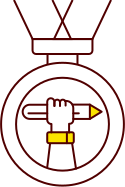
COMMUNICATION
- Articulate thoughts and ideas clearly and effectively in written
and oral forms to persons inside and outside of the organization - Can write/edit memos, letters, and complex technical reports
clearly and effectively - Employ active listening, persuasion, and influencing skills
-

CRITICAL THINKING
- Exercise sound reasoning to analyze issues
- Make decisions and overcome problems
- Gather and analyze information from a diverse set of sources and
individuals to fully understand a problem - Demonstrate originality and inventiveness

CAREER & SELF
DEVELOPMENT- Identify & articulate skills, strengths, knowledge, and
experiences relevant to the position - Identify areas necessary for professional growth
- Navigate and explore job options
- Understand how to advocate for opportunities in the workplace
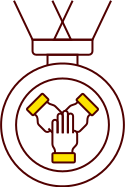
TEAMWORK
- Optimize mission accomplishment within a team structure
- Listen carefully to others, taking time to understand and ask
appropriate questions without interrupting - Build collaborative relationships with colleagues and customers
representing diverse viewpoints - Negotiate and manage conflict
-
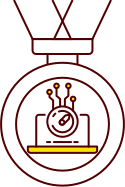
TECHNOLOGY
- Leverage existing digital technologies ethically and efficiently to
solve problems, complete tasks, and accomplish goals - Demonstrate effective adaptability to new and emerging
technologies - Navigate change and be open to learning new technologies
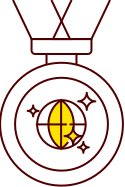
RESPECT
- Demonstrate openness and sensitivity to people of different cultures and backgrounds
- Solicit and use feedback from multiple perspectives
- Keep an open mind to creative ideas and new ways of thinking
- Seek global cross-cultural interactions and experiences

ADAPTABILITY
- Recognize and adjust to unforeseen circumstances
- Maintain flexibility in complex situations
- Modify plans to accomplish predetermined goals
- Overcome obstacles
- Leverage existing digital technologies ethically and efficiently to
-
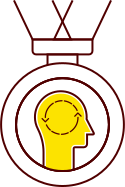
RESILIENCY
- Recover from setbacks or failure
- Mentally and emotionally cope with crisis
- Protect oneself from the potential negative effects of stressors
- Grit and determination to elevate above circumstances

PHYSICAL & MENTAL
WELLNESS- Make choices toward a healthy and fulfilling life
- Self care, stress reduction and the development of inner strength
- Maintain optimal body structures and functions through healthy
food intake, physical activity and exercise, sleep health, and
proper hydration

FINANCIAL LITERACY
- Understand and properly apply financial management skills
- Make informed and effective decisions with financial resources
- Create and maintain personal and organizational budgets
- Protect economic value with appropriate financial risk
management
-

PROFESSIONALISM
& WORK ETHIC- Personal accountability & effective work habits
- Time workload
- Act responsibly with the interests of the larger community in mind
- Learns from his/her mistakes
-

ETHICAL LEADERSHIP
- Integrity and ethical behavior
- Guide, motivate, and inspire others
- Leverage strengths of self and others to achieve common goals
- Use interpersonal skills to coach and develop others
- Organize, prioritize, and delegate work
-

ORAL & WRITTEN
COMMUNICATION SKILLS- Articulate thoughts and ideas clearly and effectively in written and oral forms to persons inside and outside of the organization
- Can write/edit memos, letters, and complex technical reports clearly and effectively
-

CRITICAL THINKING &
PROBLEM SOLVING- Exercise sound reasoning to analyze issues
- Make decisions and overcome problems
- Obtain, interpret, and use knowledge, facts, and data in decision-making processes
- Demonstrate originality and inventiveness
-

CAREER
MANAGEMENT- Identify & articulate skills, strengths, knowledge, and experiences relevant to the position
- Identify areas necessary for professional growth
- Navigate and explore job options
- Understand how to advocate for opportunities in the workplace
-

TEAMWORK &
COLLABORATION- Work within a team structure to maximize mission accomplishment
- Build collaborative relationships with colleagues and customers representing diverse viewpoints
- Negotiate and manage conflict
-

DIGITAL
TECHNOLOGY- Leverage existing digital technologies ethically and efficiently to solve problems, complete tasks, and accomplish goals
- Demonstrate effective adaptability to new and emerging technologies
-

GLOBAL/INTERCULTURAL
FLUENCY- Demonstrate openness, inclusiveness, sensitivity
- Ability to interact respectfully with all people
- Respect and learn from diverse cultures, races, ages, genders, sexual orientations, and religions
- Understand individuals’ differences
-

ADAPTABILITY
- Recognize and adjust to unforeseen circumstances
- Maintain flexibility in complex situations
- Modify plans to accomplish predetermined goals
- Overcome obstacles
-

RESILIENCY
- Recover from setbacks or failure
- Mentally and emotionally cope with crisis
- Protect oneself from the potential negative effects of stressors
- Grit and determination to elevate above circumstances
-

PHYSICAL & MENTAL
WELLNESS- Make choices toward a healthy and fulfilling life
- Self-care, stress reduction and the development of inner strength
- Maintain optimal body structures and functions through healthy food intake, physical activity and exercise, sleep health, and proper hydration
-

FINANCIAL LITERACY
- Understand and properly apply financial management skills
- Make informed and effective decisions with financial resources
- Create and maintain personal and organizational budgets
- Protect economic value with appropriate financial risk management
HOW THE CORPS HELPS CADETS BECOME CAREER READY
- Education and HCEL curriculum
We have intentionally integrated career readiness throughout our courses and curriculum. Our courses are designed and presented to help students improve their knowledge and skills in all of the career readiness competencies. - Advising and Coaching
HCALS staff members meet with cadets one-on-one to help them explore career options and develop a plan to successfully enter their preferred career. - Internship and Job Support
Use “Hire A Cadet” marketing strategy to develop internship and full-time job opportunities for cadets. The program targets stakeholders such as employers, faculty/staff, parents, former cadets and the Aggie Network. - Programs and Events
R U Ready? Events:
During these informational sessions, companies and organizations provide cadets the opportunity to explore and gain insight into different careers, companies, organizations, and employment opportunities. They also help increase cadets’ knowledge of career readiness (CR) competencies by providing personal and workplace perspectives. Are you a company looking to partner with HCEL? Contact Ken Allison at [email protected] today!
Career Readiness Speaker Series:
The Corps of Cadets Career Readiness Speaker Series is a key component of our efforts to help prepare cadets/students for a successful transition from college into their careers. The goal of the series is to help educate and inspire cadets/students. At least once a month, we invite a respected leader/scholar from diverse career backgrounds to share his/her personal stories, expertise, perspectives and insights on one or more of the career readiness competencies. They provide valuable new perspectives which enrich the learning experience. Are you a company or individual looking to partner with HCEL? Contact Ken Allison at [email protected] today!
IMPACTS
Creating a culture where cadets from day 1 view career readiness as an essential part of the
Texas A&M University and Corps of Cadets experience
![]()
93% of cadets graduated in May 2019 who wanted a job were able to obtain
![]()
Yearly average of 500 internships and jobs for junior and seniors cadets
![]()
Forged partnership with 400+ companies to provide internships and job opportunities
![]()
Average of 50 “R U Ready Events” each academic year hosted by companies looking to hire cadets
![]()
93% of cadets graduated in May 2019 who wanted a job were able to obtain
![]()
Yearly average of 500 internships and jobs for junior and seniors cadets
![]()
Forged partnership with 400+ companies to provide internships and job opportunities
![]()
Average of 50 “R U Ready Events” each academic year hosted by companies looking to hire cadets
THE COURSES WE OFFER & BRIEF DESCRIPTIONS OF CONTENT
Fundamentals of Intentional Leadership
Credits 0-1. 0-1 Lecture Hours.
Exposure to the fundamentals of intentional leadership, deliberate practice, planning and leadership assessment; development of initial personal leadership development plans; alignment of personal and organizational values, vision, mission, purpose and goals toward desired outcomes.
Prerequisites: Grade of C or better in SOMS 280 or approval of department head or director.
Workshop in Leadership Education
Credits 0-1. 0-1 Lecture Hours.
The study of leadership theory, intra group relationships, assessment tools for skills development, and techniques for achieving group goals.
Prerequisite: Junior classification or approval of instructor.
Workshop in Leadership Education II
Credits 0-1. 0-1 Lecture Hours.
Continuation of SOMS 380. Fundamentals of small group dynamics; interpersonal communication; application of selected leadership theories; interpretation of individual assessments to include personality traits, values, and signature strengths.
Prerequisites: SOMS 380 junior or senior classification.
Seminar in Executive Leadership
Credits 0-1. 0-1 Other Hours.
The study of contemporary leadership issues, organizational effectiveness, problem solving, and decision making.
Prerequisite: Senior classification or approval of instructor.
Seminar in Executive Leadership II
Credits 0-1. 0-1 Other Hours.
Continuation of SOMS 481. Discussion of ethical dilemmas in leadership roles; ethical decision-making; personal accountability in organizational settings.
Prerequisite: SOMS 481 or approval of instructor.
Directed Studies
Credits 1 to 4. 1 to 4 Lecture Hours.
Individual supervision of special readings or assigned projects to promote independent study; program enrichment for capable students; written and oral reports required.
Prerequisite: Approval of instructor.
Special Topics in...
Credits 1 to 4. 1 to 4 Lecture Hours.
Selected topics in an identified area of leadership theory and practice. May be repeated for credit.
Prerequisites: Junior or senior classification; approval of instructor.
STUDENT/FORMER STUDENT TESTIMONIES
-
“I have been shadowing the executive leadership team of the Houston Methodist Baytown Hospital and the majority of the wisdom they have been imparting on me are lessons we learned in (SOMS) class. Knowing your strengths and weaknesses, focusing on processes, knowing what values you believe in as a leader, and having a leadership philosophy you can clearly communicate are just a few of the lessons I have learned from these executives and from completing my ILDP. I just wanted to let you know you have done an excellent job molding this program into something which will put us leaps and bounds ahead of our peers outside of the program, and I wanted to thank you for that!”
Recent graduate, Class of 2019
-
“I can’t describe how much of an impact [this program] has had on me. It got me my first job and most importantly, made me a better person!”
Recent graduate, Class of 2019
-
“I wanted to let you know I found my first job as a research administrator here at Texas A&M and could not be happier. Having the leadership certificate on my resume and being able to talk about it in my interview was a tremendous advantage.”
Recent graduate, Class of 2018
-
“I have been shadowing the executive leadership team of the Houston Methodist Baytown Hospital and the majority of the wisdom they have been imparting on me are lessons we learned in (SOMS) class. Knowing your strengths and weaknesses, focusing on processes, knowing what values you believe in as a leader, and having a leadership philosophy you can clearly communicate are just a few of the lessons I have learned from these executives and from completing my ILDP. I just wanted to let you know you have done an excellent job molding this program into something which will put us leaps and bounds ahead of our peers outside of the program, and I wanted to thank you for that!”
Recent graduate, Class of 2019
-
“I can’t describe how much of an impact [this program] has had on me. It got me my first job and most importantly, made me a better person!”
Recent graduate, Class of 2019
-
“I wanted to let you know I found my first job as a research administrator here at Texas A&M and could not be happier. Having the leadership certificate on my resume and being able to talk about it in my interview was a tremendous advantage.”
Recent graduate, Class of 2018
STAFF INFO
OPPORTUNITY TO GIVE
The Hollingsworth Center operates exclusively from the generous funding of our donors. If you are interested in learning more about how to partner with us to develop leaders of character for the state, nation, and world, please contact the Corps Development office here.
HISTORY OF GENERAL HOLLINGSWORTH
Our namesake, Lt Gen James Hollingsworth ’40, demonstrated extraordinary leadership in both military and civilian sectors of society. We are honored to carry on his legacy by developing ethical graduates to serve as bold, career-ready leaders in all segments of the workforce.
